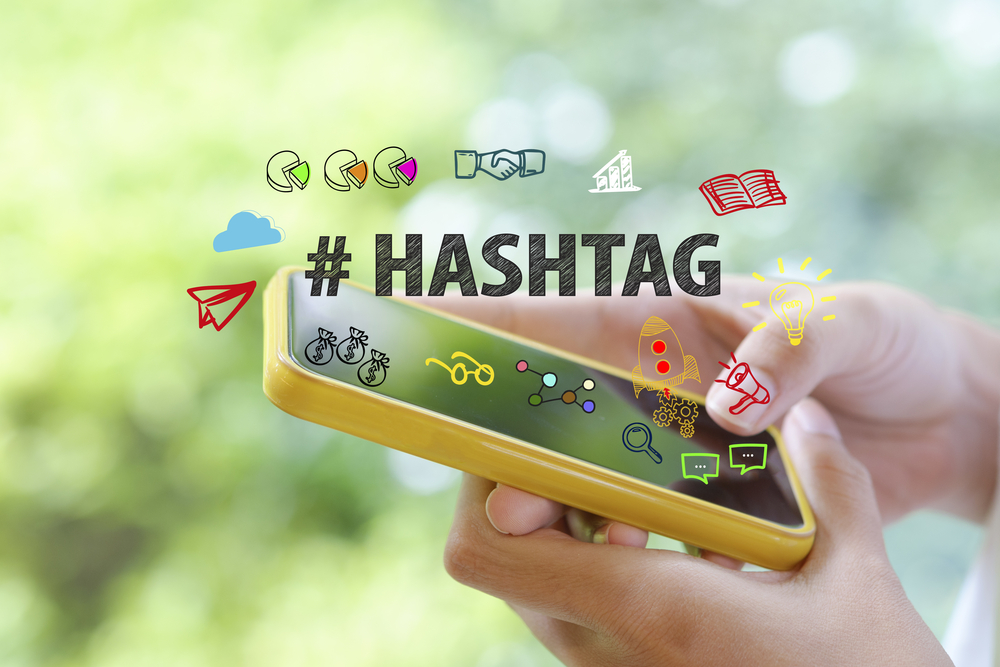Adding hashtags to a social post has become second nature. In fact, it’s so common, few of us stop to consider that as fun and useful as hashtags can be, they can also have consequences if we misuse them.
But hashtags are more than add-ons to a post, they are power tools. In fact, when we put the pound (#) sign in front of a word, we turn that word into a piece of metadata that tags the word, which allows a search engine to index and categorize the attached content so anyone can search it. Looking for advice parenting an autistic child? Then hashtags like #autism #spectrum, or #autismspeaks will connect you with endless content tagged the same way.
Hashtags have become part of our lexicon and are used by individuals, businesses, and celebrities to extend digital influence. Social movements — such as #bekind and #icebucketchallenge — also use hashtags to educate and rally people around a cause. However, the power hashtags possess also means it’s critical to use them with care. Here are several ways people are using hashtags in harmful ways.
5 hidden hashtag risks
- Hashtags can put children at risk. Unfortunately, innocent hashtags commonly used by proud parents such as #BackToSchool, #DaddysGirl, or #BabyGirl can be magnets for a pedophile. According to the Child Rescue Coalition, predators troll social media looking for hashtags like #bathtimefun, #cleanbaby, and #pottytrain, to collect images of children. CRC has compiled a list of hashtags parents should avoid using.
- Hashtags can compromise privacy. Connecting a hashtag to personal information such as your hometown, your child’s name, or even #HappyBirthdayToMe can give away valuable pieces of your family’s info to a cybercriminal on the hunt to steal identities.
- Hashtags can be used in scams. Scammers can use popular hashtags they know people will search to execute several scams. According to NBC News, one popular scam on Instagram is scammers who use luxury brand hashtags like #Gucci or #Dior or coded hashtags such as #mirrorquality #replica and #replicashoes to sell counterfeit goods. Cybercriminals will also search hashtags such as #WaitingToAdopt to target and run scams on hopeful parents.
- Hashtags can have hidden meanings. Teens use code or abbreviation hashtags to reference drugs, suicide, mental health, and eating disorders. By searching the hashtag, teens band together with others on the same topic. Some coded hashtags include: #anas (anorexics) #mias (bulimics) #sue (suicide), #cuts (self-harm), #kush and #420 (marijuana).
- Hashtags can be used to cyberbully. Posting a picture on a social network and adding mean hashtags is a common way for kids to bully one another. They use hashtags such as #whatnottowear, #losr, #yousuck, #extra, #getalife, #tbh (to be honest) and #peoplewhoshouldoffthemselves on photo captions bully or harass peers. Kids also cyberbully by making up hashtags like #jackieisacow and asking others to use it too. Another hashtag is #roastme in which kids post a photo of themselves and invite others to respond with funny comments only the humor can turn mean very quickly.
When it comes to understanding the online culture, taking the time to stay informed, pausing before you post, and trusting your instincts are critical. Also, being intentional to monitor your child’s social media (including reviewing hashtags) can help you spot potential issues such as bullying, mental health problems, or drug abuse.













